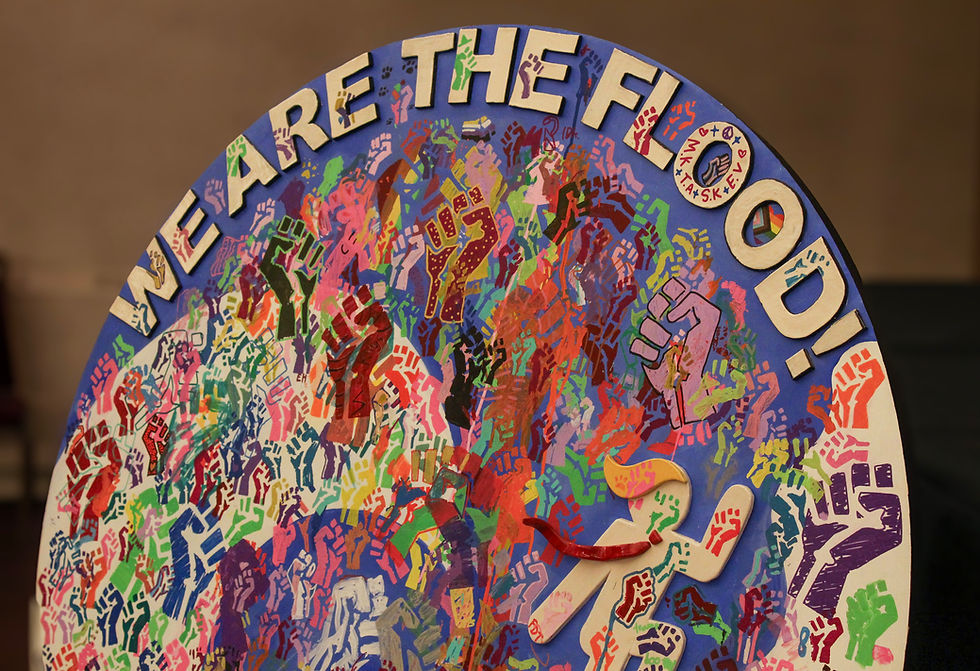Dean candidate Jen Miller, of Cal-State LA, brings social justice experience
- Collegian staff
- Mar 18, 2021
- 3 min read
David Flanagan
Opinions editor

A profile picture of Jen Miller pulled from her LinkedIn profile.
The third finalist for the position of Dean of Students for Community Care and Inclusion, Jennifer Miller, Ph.D., participated in an open forum on Zoom on Tuesday, Mar. 16. The Dean for CCI position replaces the previous Dean of Students position which was vacated in Fall 2019 by Domanic Thomas. The Dean for CCI will be responsible for conflict resolution, operating as the deputy Title IX coordinator and engaging with various on campus and student CARE team protocols, detailed [here].
Miller currently works as the Special Assistant to the Vice President for Student Life, among other titles, at California State University - Los Angeles, a public university with around 26,000 students enrolled between undergraduate and postgraduate programs. She has extensive experience with social justice initiatives on multiple university campuses and prides herself in her holistic approach to serving students. Her complete resume can be viewed [here]. Many of the questions during the forum concerned her role at Willamette, her background with social justice and evidenced-based problem solving at other campuses where she has previously worked.
Miller began the forum by speaking about why she is applying to work at Willamette at this time. She described challenging leadership shifts at California State University - Los Angeles and expressed a desire to serve students intentionally. She noted that, “I’m just looking forward to getting back to the core values of who I am and the work I know I’m meant to do, in the right work environment. Willamette certainly seems to be a fit.”
Associate Dean of Student Success and Professor of English Gretchen Flesher Moon asked Miller what she anticipated being among the greatest challenges she would face if hired at Willamette. Miller indicated that establishing trust in situations involving majority and minority groups is an important part of her work and emphasized the fragility of trust. Miller noted that her largest “trust buster” occurs when students don’t feel like they are being listened to, and emphasized the need to clearly communicate to students what exactly is being done to address their concerns.
Professor Omari Weekes of the Willamette English department posed a question asking Miller to provide a time where BIPOC students approached her about an issue on campus, what she did by way of response and what she thinks she could have done better. Miller recounted a story where Black male-identifying students were dropping out of California State University - Los Angeles between enrollment and registration. Miller made many of the calls to the students herself, and identified that part of the problem was the payment method of the school. She took concrete steps to fix the concern, and felt that the outcome was ultimately positive. However, Miller was clear that in hindsight, having the white Dean of Students making the calls could have been done differently. Miller indicated that, “I would have wished I could have been more intentional. I’m glad I made those calls; we got students to stay. I think when we’re rushed and we’re doing things quick, we don’t have the opportunity to holistically care for students the same way. It will look different next time.”
Additionally, asked by V. Maldonado of the Pacific Northwest College of Art about her definition of equity, Miller said that equity must go beyond numbers. She told the forum that making students feel like they are being invested in is one of the most important things an administrator could do. Miller said that equity on many axes is important, from frontline staff to training for faculty. Miller said that, “Students shouldn’t have to be activists for us to make sure we’re using an equity lens to the approach to our work.” She was clear that things are not equal right now, and that institutions are not set up to fix inequities currently.
Miller later fielded questions concerning topics including the needs of neurodivergent students, the kinds of programming that help graduate students feel included in campus communities and the challenges and benefits of coordinating administrative efforts between multiple campuses. Her responses remained focused on creating space for discussion about student needs and recognizing the role that administration has in creating a more accessible learning environment for all students, incorporating their backgrounds and lived experiences while not limiting them in any way.




Comments